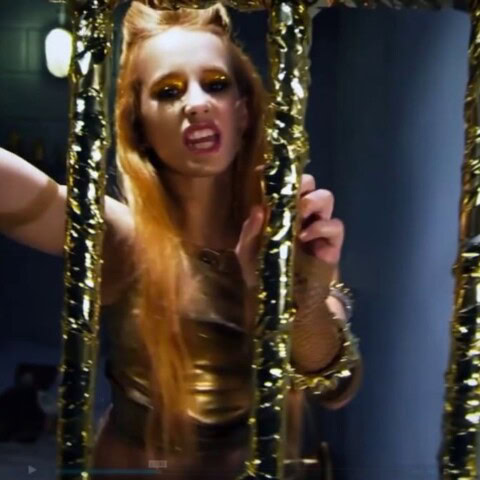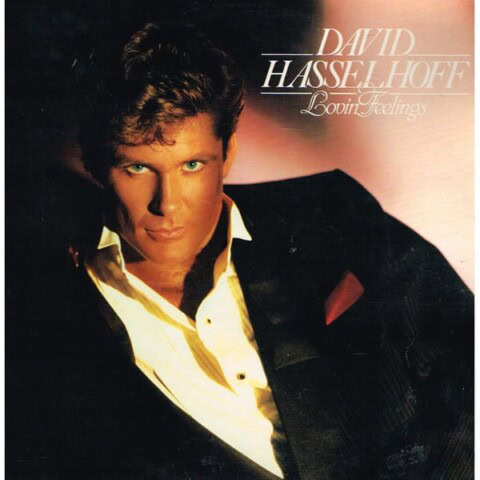 1001 Albums You Must Die Before You Hear
1001 Albums You Must Die Before You Hear
MATT KELLY endured two of the worst Chicago albums just so you would never have to. Below, he details the abject horror.
#64: Chicago VII (1974)
When it comes to the popular classic rock nerd past-time of identifying where exactly Chicago began to suck, I realize I’m striking earlier than most. My dislike for this album may be surprising as VII is a conscious effort to react against the soft, disposable tendencies that infected VI. Yet despite intentions to return the band to more adventurous territory with a double disc containing large amounts of jazz fusion, VII is their worst effort so far.
I think the reason why is fairly clear – they’re “trying”. This record seems born of insecurity about being sellouts rather than genuine excitement. There’s something very sterile about the suite of instrumentals that opens VII – the passion of the first four albums is awol.
Support Witchdoctor’s ongoing mission to bring a wealth of new and historic music interviews, features and reviews to you this month (and all year round) as well as coverage of quality brand new, contemporary NZ and international music. Witchdoctor, entertainment for grownups. Your one-off (or monthly) $5 or $10 donation will support Witchdoctor.co.nz. and help us keep producing quality content. It’s really easy to donate, just click the ‘Become a supporter’ button below.
On the 10-minute opener ‘Aire’, despite the addition of Brazilian percussionist Laudir de Oliveira, the tropical resort vibe of the track makes it seem like Barry Manilow is going to start singing any moment, and the horns feel fake and cheesy. ‘Devil’s Sweet’ is another ten minutes of jazz-rock meandering and though there is some nice playing from Lamm and Kath, it never amounts to much. And Lamm can fuck right off with the ridiculous ARP sound effects he ruins ‘Italian From New York’ with.
But after 25 minutes of vocal-free jazz, the songs begin. And things actually get worse. Words can’t describe how much I loathe ‘Searching So Long’, a dreary shoot-me-now ballad which feels like it’s two hours long, every single second water torture as you watch a great band piss away its talent and make the Bee Gees sound like Motorhead. And it’s not alone either – tracks like ‘Happy Man’ and ‘Call On Me’ are sickeningly soft and sappy and must have been a real slap in the face for people who bought VII expecting musical adventure as was advertised.
Which is not to say the album is relentlessly terrible. ‘Life Saver’ has a cool and funky strut with some nice vocal hooks towards the end, while ‘Wishing You Were Here’ is a rare spooky Chicago song where Kath sings in subdued fashion against haunting backing vocals and Lamm’s effective use of Minimoog. I also like ‘Song Of The Evergreens’ – the debut lead vocal of trumpeter Lee Loughnane who does a decent job, it’s a moody soft rocker reflecting on the changes of the seasons with an effective atmosphere.
 However, these flashes of okayness are drowned out by the mounds of disappointing material surrounding them. Your reward for getting through 72 minutes of this album is the deeply embarrassing ‘Skinny Boy’ where the band desperately tries to convince us of how down and funky they are, yet the tepid, out-of-touch nature of the track puts it in “your dad does an Eminem song at your wedding reception” territory.
However, these flashes of okayness are drowned out by the mounds of disappointing material surrounding them. Your reward for getting through 72 minutes of this album is the deeply embarrassing ‘Skinny Boy’ where the band desperately tries to convince us of how down and funky they are, yet the tepid, out-of-touch nature of the track puts it in “your dad does an Eminem song at your wedding reception” territory.
It’s sad but in trying to rediscover their roots, with VII Chicago only underlines how much they’ve forgotten their roots.
 1001 Albums You Must Die Before You Hear
1001 Albums You Must Die Before You Hear
#65: Chicago XXI – Twenty 1 (1991)
The problems begin when you see the title – who the fuck writes one place value as the word “twenty” and then the second place value with the numeral “1”? Unfortunately this sort of cockup is going to be the order of the day with what is clearly Chicago’s worst ever studio LP.
I cannot stress enough what a disaster this was – previous album XIX featured four top ten hits, one of them a monster #1 that was the biggest song of 1989, and was followed by a greatest hits compilation that sold over five million copies. XXI (I refuse to write “Twenty 1”) features no hits at all, did not even go gold, ended the band’s commercial relevance and nearly their career as the fallout of this catastrophe would severely impact their next two projects. They’ve never fully recovered – despite releasing 17 albums of original material in their first 22 years, they’ve only released three in the 30 since XXI.
The damage is about more than numbers though – the music is *terrible*. It’s the kind of project I’m actually glad bombed because I wouldn’t want to be in a world where the marketplace encouraged more of this.
 Chicago founder/keyboardist/vocalist Robert Lamm hates it – he felt strongly enough that he slammed it at the time of release rather than waiting the customary few years. Lamm says the success of ‘Look Away’ made Warners thirsty for more and the company pushed the band to do a lot of faceless Diane Warren clone songs with outside writers rather than material they cared about. Producer Ron Nevison also considers the record a stinker and is quick to point out that with the band away on tour and recording progressing slowly, Warners actually authorized a sound engineer to change Nevison’s mixes and complete tracks with session musicians.
Chicago founder/keyboardist/vocalist Robert Lamm hates it – he felt strongly enough that he slammed it at the time of release rather than waiting the customary few years. Lamm says the success of ‘Look Away’ made Warners thirsty for more and the company pushed the band to do a lot of faceless Diane Warren clone songs with outside writers rather than material they cared about. Producer Ron Nevison also considers the record a stinker and is quick to point out that with the band away on tour and recording progressing slowly, Warners actually authorized a sound engineer to change Nevison’s mixes and complete tracks with session musicians.
So if you’re still here after all these red flags, I invite you to listen to ‘You Come To My Senses’ (I wish the band had come to their senses) and try to listen to the whole song back to front without breaking into giggles. A near parody of meek adult-oriented ballads, this never-ending cheese fest features a shockingly sappy vocal performance from bassist Jason Scheff which he should be blushing about to this very day.
The unintentional comedy keeps coming with ‘God Save The Queen’ which is sadly not a Sex Pistols cover but an astonishingly lame attempt at environmentally conscious rock. “The greenhouse conditions are getting steamy” croaks Bill Champlin over dime store faux-funk production. And yes there’s a song actually called ‘Explain It To My Heart’, a wretched failure of a power ballad as Chicago goes back to the “lament quietly over failed relationship backed by over-produced piano” before the world’s most personality challenged drumming kicks in for the chorus as the vocalist wishes for the renewal of said relationship, while sounding like they’re dealing with a nasty hernia once too often.
Even when the album is competent as on heartbroken pop-rocker ‘Somebody Somewhere’, there’s a yucky plastic sheen to the sound and songwriting, and there’s not a single song on the record that I’d place on a Best Of Chicago playlist. It’s worth noting that XIX was original drummer Danny Seraphine’s final album and as he was a big force behind the band’s forays into jazz and funk in the ’70s, one wonders if his absence on XXI is why feels so soulless and assembly line.
At times it’s remarkable how there’s so much noise and so little song – there’s brash keyboards and guitars and horns flying all over the place but no underlying point or structure that would engage your brain or heart in any meaningful way.
And as Bill Champlin wheezes his way through the insufferably insipid lovelorn cliches of ‘Chasing The Wind’ where it sounds like everything is being played on an electric piano, we see the tragedy of Chicago reach its grim and terrifying nadir. This, my friends, is the music industry revealed, the potent, free-wheeling revolutionary band that made that five-star debut back in 1969, lobotomized, neutered and making music no one could possibly care about.















